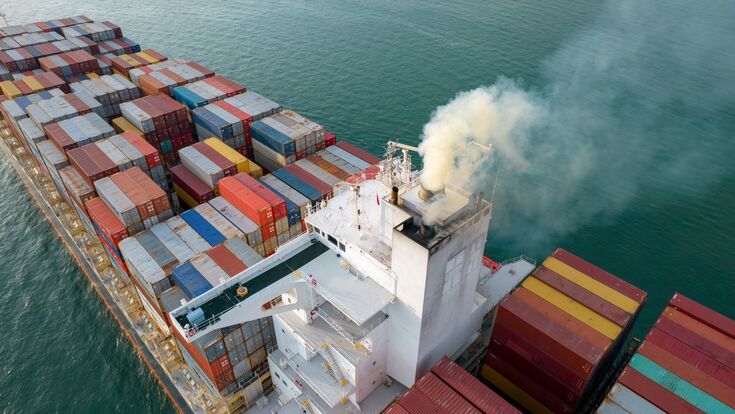Maritime safety : Council and Parliament reach agreement to ensure safer and cleaner shipping in the EU

On February 15 the Council Presidency and European Parliament negotiators agreed on a draft for the important directive regarding ship-source pollution. The proposal is part of the maritime safety package presented by the Commission on 1 June 2023. The five legislative proposals, including those on maritime accident investigation, flag State compliance, port State control and the European Maritime Safety Agency (EMSA), aim to modernise the EU's maritime safety rules and reduce water pollution from ships.
Maritime transport is not only the artery of a globalised economy, but also a lifeline for the EU's islands and peripheral and remote maritime regions, as 75% of the EU's external trade is carried by sea. Maritime safety in EU waters is currently very high, with few fatalities and no recent major oil spills. However, more than 2,000 maritime accidents and incidents are still reported each year. The adoption and implementation of the maritime safety legislative package will be a tangible result of the EU's commitment to sustainable and intelligent mobility.
The revised directive brings international standards into EU law and ensures that those responsible for illegal discharges of polluting substances are subject to sanctions that are deterrent, effective and adequate, in order to improve maritime safety and better protect the marine environment from pollution by ships.
All in all, it will provide the EU with modern tools to promote clean shipping by bringing EU rules into line with international standards and ensuring a level playing field for the maritime sector, while improving implementation and enforcement through a strengthened cooperation framework between European and national authorities.
"Seas and oceans are our common good. These new rules will set the EU to the forefront when it comes to clean shipping. We found a compromise that will ensure cleaner seas in Europe while at the same time providing a level playing field for a dynamic shipping industry", said Paul Van Tigchelt, Belgian deputy prime minister and minister for justice and the North Sea.
Key objectives of the revised directive
- extend the scope of the current directive to illegal discharges of packaged polluting substances, sewage, waste and effluent and residues
- establish a strengthened legal framework for sanctions and their effective application, enabling national authorities to ensure a sufficiently dissuasive and consistent application of sanctions for ship-source pollution incidents in all European seas
- separate the administrative sanctions regime from the criminal sanctions regime laid down in the new draft Directive on environmental offences
Seas and oceans are our common good. These new rules will set the EU to the forefront when it comes to clean shipping. We found a compromise that will ensure cleaner seas in Europe while at the same time providing a level playing field for a dynamic shipping industry.Paul Van Tigchelt, Belgian deputy prime minister and minister for justice and the North Sea
Main elements of the new legislation
The co-legislators have maintained the general thrust of the Commission's proposal. However, the provisional agreement introduces a number of changes to ensure clarity and consistency with international rules and procedures, in particular those of the International Convention for the Prevention of Pollution from Ships (MARPOL), in the interest of the protection of the marine environment.
Taking into account the different legal systems in the Member States, the provisional agreement also makes it clearer that the legislation in question concerns only administrative sanctions, thus drawing a clear line between the scope of this Directive and that of the new draft legislation on environmental offences.
In addition, sufficient flexibility has been introduced with regard to Member States' obligations to investigate and report pollution incidents in order to avoid excessive administrative burdens and to take account of the different situations of Member States in terms of geographical location, resources and capabilities.
Next steps
The provisional agreement has to be approved by both co-legislators before the formal adoption of the legislative act by the European Parliament and the Council. Member States will have 30 months from the entry into force of the revised Directive to transpose its provisions into national law.
